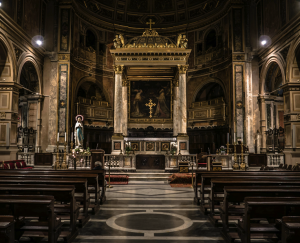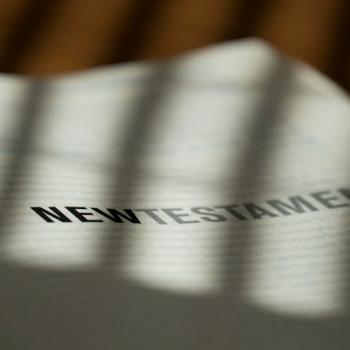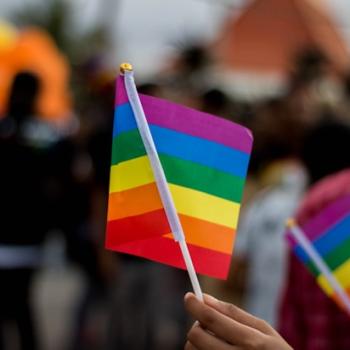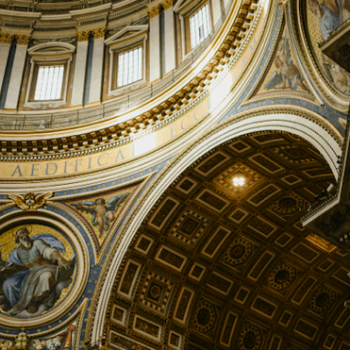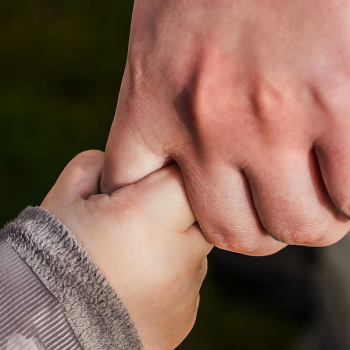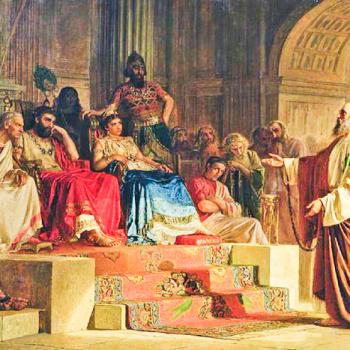I Grew Up In Catholic School…
At least that’s how a lot of these stories go. I do not want to claim that I am the authority on Catholicism simply because I went to Catholic School all my life. Of course, while I may know more than most who have not been exposed to Catholic education and mass, there is so much more worth diving into than my 16 years of Catholic Education allowed. However, most recently I have been enthralled by serious questions revolving the Catholic Faith:
- Why are our Bibles different from each other?
- What is the role of Mary in the Catholic Church?
- Also, why do Catholics believe the Papacy is biblical?
- What roles do ecumenical councils hold within the Church?
- Are Catholics Christians?
- What does doctrinal development look like for Catholics?
This is but a taste of where my headspace has been.
Of course this led me to read.
Books that I’ve Explored
I’ve taken a look at Hail Holy Queen by Scott Hahn and Jesus and the Jewish Roots of Mary by Brant Pitre. I have a Brant Pitre book on the Eucharist that I’m slated to read this year.
I have read Mary Through the Centuries written by a Lutheran Minister, Jaroslav Pelikan.
The book, The Marian Mystery: Outline of a Mariology, was a helpful read when exploring doctrinal development around the Theotokos, the Mother of God. And of course, I have begun Catholicism: A Journey to the Heart of Faith by Bishop Robert Barron. The Catechism of the Catholic Church has been glossed over by my eyes as I explore the doctrines that set the Catholic Faith apart. Mostly, the Magisterium and Mary.
Again, this does not make me an expert. I am a curious Protestant that simply wants to understand Catholics.
But curious as I am, there are a couple of reasons why I am not Catholic, and I hope to faithfully outline Catholic Positions that I disagree with. Here, I list two. If I err in some regard, please challenge me and correct me.
Reason No. 1: An Authority Issue
Protestants, famously, hold to the doctrine of Sola Scriptura. The reason being is that there were teachings going on within the Catholic Church that seemed to go against the teachings of Jesus and the Apostles themselves. Something was wrong. Reformation was needed. However, the Catholic Church rejects Sola Scriptura, and has anathomotized by the RCC.
The Catechism of the Catholic Church (CCC) outlines the relationship between Sacred Scripture and Sacred Tradition like this:
- Sacred Tradition and Sacred Scripture originate from one source. (CCC 80)
- Sacred Tradition transmits the Word of God to the successors of the Apostles. And it transmits only what has been handed down (CCC 81 and 84)
- The Church doesn’t derive “her certainty about all revealed truths from the holy Scriptures alone. Tradition and Scripture must be accepted equally in reverence and devotion. (CCC 82)
- The Tradition comes from the Apostles and not from local church development (CCC 83)
- The task of interpreting the Word of God, in written form or tradition, is entrusted to the Office of the Church alone. It is entrusted to Bishops in communion with the Bishop of Rome (CCC 85)
- Of course, the Magisterium (the teaching order of the Church) exercises the authority of Christ when it defines dogma, an irrevocable adherence of faith. (CCC 88)
- And, Scripture is to be read within the living tradition the Church (CCC 113)
The Interpretation of the Scriptures
As you may have noticed, there are a couple of differences between the Protestant view and the Catholic view. As outlined in the CCC, the right interpretation of Scripture is reserved for Bishops in communion with the Pope. Lay members have no authority in interpreting the Scriptures, even though there are guidelines given for interpretation given later on in the CCC.
When Scripture is given to those in power as the sole authority, problems arise:
First, Scripture becomes mangled. This is one of the reasons for the Reformation. Indulgences, Salvation by “grace” that translates to the necessity of the sacraments, and the need to bow before the bishop of Rome in the process led to powder keg events in the 14th, 15th, and 16th centuries.
Second, while the Holy Spirit is listed as the interpreter of the Scriptures for the Church, Church History shows that, given this view, either the Holy Spirit is confused, or Church Authority is confused. It can’t be both. Of course, my bets are on the Bishops being confused.
For instance, the assumption of Mary was not labeled as a dogma of Catholic belief until the 2nd Vatican Council. The reason is that it had been argued for and against for 1900 years.
Are we to believe that the Holy Spirit just figured it out that Mary is up in heaven body and soul?
Third, Teaching and Interpretive authority is relegated to Bishops, the lay people have no push to read for themselves. I rely on experience here (which may not be fair, granted.) Growing up in Catholic School, I never learned interpretive strategies for reading the Bible. The priest never mentioned them in his homilies, and my religion teachers never outlined Historical-Critical methods (which was tolerated in Vatican II) or Allegorical and Typological methods.
Reason No. 2: Theotokos
Here is a Protestant position on Mary. Mary is an exemplar of the faith. By her obedience to God, Jesus Christ was conceived by the Holy Spirit, was born, and was able to carry out His mission on Earth. For she was “full of grace” just as Stephen is described in the New Testament. And she was one who we turn to as an exemplar.
The Catholic Church, officially, as stated in the Catechism, teaches this:
- Mary is all-holy ever-virgin Mother of God and is represented in the liturgy as the “Seat of Wisdom.” (CCC 721)
- Mary was conceived without sin and was prepared by a special grace of the Holy Spirit. (CCC 722)
- It is through Mary that the Holy Spirit brings people into communion with Christ. (CCC 725)
- Also, Mary became the Woman, the New Eve toward the end of Christ’s Earthly Mission. (CCC 726)
- Mary is preserved from original sin and was taken up body and soul into heaven. And she is the Queen over all things. (CCC 966)
- She is, also, mother to us in order of grace. (CCC 967)
- She holds the title of Advocate, Helper, Benefactress, and Mediatrix. (CCC 969)
- Devotion to Mary includes Feast Days and the rosary. This is different from adoration given to Jesus and the Father and the Holy Spirit. (CCC 971)
Mary for Protestants
As one would hope, the issue here should be apparent, especially when reading CCC 969. As you can tell, one title is reserved for the Holy Spirit by Jesus Himself, another is given to all women in Genesis, and another is developed in the Middle Ages (not early Christendom.)
While devotion to Mary is described as different from adoration given to the triune God, a denotation conveniently made during the Counter-Reformation, in all practicality it is the same. The Catholic Church treats Mary as a Mediatrix and by her men come to Christ.
It is not God’s predestining work, or regeneration by the Spirit, but through Mary, we get to her Son.
There was a video going around of a priest saying that Mary, like the Queen on a chess board, is more mobile than the King. This analogy seems to put Mary’s power over that of Christ.
How puny does God have to me for a mortal to be more active than He?
What’s more, the assumption, as mentioned earlier, did not become dogma by Church Authority until 1950.
Was the Holy Spirit confused up until this point as to whether Mary was up in heaven body and soul?
It is strange that Paul, Peter, James, John, Matthew, and Luke failed to mention some of the main doctrines of Mary. For instance, In Paul’s largest outline of the Gospel in the book of Romans, he fails to mention her in the way that the Roman Catholic Church does.
While some doctrines do in fact find their root in Scripture, in order to come to the conclusions made, serious mangling must happen.
Reason No. 3: Sacramentalism
Of course, I Could Spend Time Parsing Out the Issue of the Sacraments… however, I’ll simply quote the catechism and Paul alongside each other and save my commentary for a later article.
“The Church affirms that for believes the sacraments of the New Covenant are necessary for salvation. ‘Sacramental grace’ is the grace of the Holy Spirit, given by Christ and proper to each sacrament. The Spirit heals and transforms those who receive him by conforming them to the Son of God. The fruit of the sacramental life is that the Spirit of adoption makes the faithful partakers in the divine nature by uniting them in a living union with the only Son, the Savior.” (CCC 1129)
Here’s what Paul says:
“But because of his great love for us, God, who is rich in mercy, made us alive with Christ even when we were dead in transgressions—it is by grace you have been saved. And God raised us up with Christ and seated us with him in the heavenly realms in Christ Jesus, in order that in the coming ages he might show the incomparable riches of his grace, expressed in his kindness to us in Christ Jesus. For it is by grace you have been saved, through faith—and this is not from yourselves, it is the gift of God— not by works, so that no one can boast. For we are God’s handiwork, created in Christ Jesus to do good works, which God prepared in advance for us to do.” (Ephesians 2: 4-10)
Sacred Tradition Seems to be disagreeing with Sacred Scripture on a major issue.
What are your thoughts? Are These Good Reasons to Not Be Catholic?
Share your thoughts below
Continue to follow our content in the following ways…
Make sure to subscribe to our Newsletter!
You can follow us on Facebook by clicking Here
Find us on X @TheistThinking
Check Out Our Last Article as we take a look at when my daughter became a human being.


